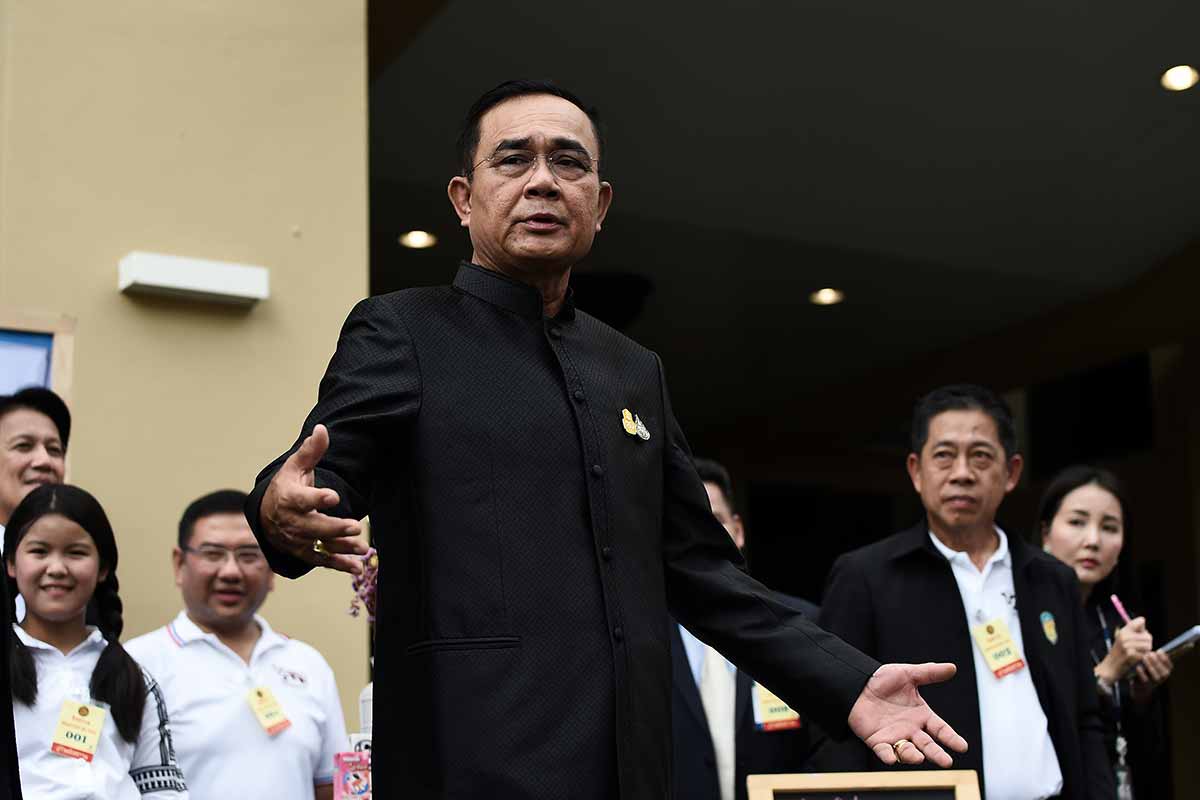Thailand’s economy may be in for far more turbulence than anticipated after the March elections. Social unrest has risen and consumer confidence has sagged since the poll, which this month saw parliament return junta leader General Prayut Chan-o-cha to power. Critics have denounced the election as rigged in favour of the pro-military camp, and foreign investors are holding back. They are right to take a wait-and-see approach.
On the eve of the March vote, it seemed like there would be only a temporary disruption in Thailand’s economic growth. The drag now appears more likely to be prolonged. Consumer confidence dropped to its lowest level in 19 months in May, and first-quarter growth was a paltry 2.8 percent from a year earlier. That was the economy’s worst performance since 2014, when Prayut took power in a bloodless military coup. Now, rather than ruling with absolute power, he will have to lead a coalition government with a slim majority.
Political instability rarely inspires confidence, and Thai consumers have already been feeling the pinch from higher oil prices. The junta announced a stimulus package worth about US$420 million in April, and further steps are expected. This should help to cushion the economy, though a more sustained recovery may depend on an end to the political turmoil.
Toll on tourism
Unrest is affecting tourism, which represents more than a fifth of Thailand’s economy. Arrivals fell 0.7 percent in March from a year earlier to 3.5 million. Visitors from China, which account for the biggest share of tourists, dropped 1.9 percent. That may not look like much, but the Thai economy will suffer if the slide continues. The country’s Tourism Authority has predicted international visitors will reach a record of more than 40 million in 2019.
The authority is promoting Thailand as an ideal location for lavish Indian weddings and honeymoons, in a sign that it may be preparing for further declines in Chinese tourists. The push appears to be working: Visitors from India surged 35 percent in March after climbing 14 percent in February. They remain a small share of overall arrivals, though, totalling about 1.8 million in the year through March.
Sinking international investor confidence and a rocky global economy could also have implications for the Eastern Economic Corridor (EEC), a key infrastructure initiative. The government says the US$54 billion development plan is on track for completion in 2021. It remains unclear who will helm the project under the new administration, though. As deputy prime minister, Somkid Jatusripitak has overseen the program’s implementation for years and has a golden touch when it comes to encouraging foreign investment. Somkid has yet to be reconfirmed, and there is jockeying within the cabinet for the deputy prime minister’s post.
Another sign that the Thai economy is in flux came from the central bank, which cited “heightened political uncertainties” in opting to keep its benchmark interest rate unchanged at 1.75 percent on 8 May.
It’s too early to tell where all these developments leave investors. It seems unlikely that Prayut, after steering the country through five years of prosperity, will suddenly discard that progress. The whole world looks to be heading toward an economic slowdown, so cut Thailand a little slack. If the country’s leaders can keep tourism and the EEC afloat, the economy will follow. Eventually. - Bloomberg
